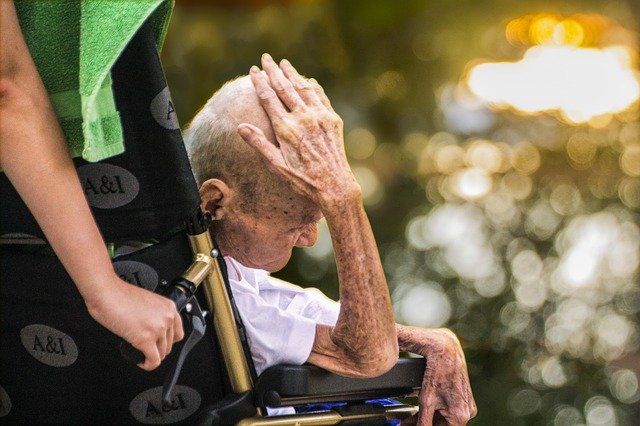There are really two concerns here. One is the awful spectre of dying out of control, of ending one’s days voiceless, in a humiliating tableau of tubes and soiled sheets. No one wants to go through such embarrassment. If die we must, we want to die with dignity.
The other fear is of dying in someone else’s control, of missing God’s timing and ending up a cadaver irrigated by pumps, while loved ones battle a faceless bureaucracy. This is a reasonable desire for a natural death, much like a pregnant woman’s desire for a natural birth. The difficulty is that the horror stories often begin with a gamble that intervention would bring healing, and only if one could predict the future would these decisions be easy. In these tough situations it is ethical to either accept or refuse treatment, but not to refuse care: basic food and water. Nor is it right to kill swiftly rather than take a chance on ‘undignified’ death.

The more I thought about these fears, the more the word ‘dignity’ began to grate. A few years ago, Brown University professor Felicia Ackerman published an essay titled ‘No thanks, I don’t want to die with dignity’, in which Ackerman questioned several popular ‘lines’ about death. She found the noble protestations (e.g. ‘I fear being a burden to my loved ones’) a subtle pressure on the dying to lie down and die. She concludes, ‘The notion that terminally-ill people should be … ready to bow out gracefully as soon as they become burdensome hardly serves their interest. It serves the interests of those who want sick people to be as little trouble and expense as possible.’
About the word ‘dignity’ she says, ‘Personally, I’ve always considered dignified people stuffed shirts. So I can’t help doubting that a fatal illness would suddenly make me find dignity more precious than life.’
A Christian world-view can build on this perception. Where indeed did we get the idea that dignity is better than life? Were we ever promised in Scripture that we can die, or do anything else, with dignity? Is God so mindful of our pride?
Clinging to rags of dignity can make us look more absurd. In ‘Singing’ in the Rain’, Gene Kelly intones grandly, ‘I’ve had one motto which I’ve always lived by: “Dignity always dignity.”‘ While his character recounts the fictitious story of a noble career in fine theatre, the viewer sees reality: Kelly in a checked suit, strumming a ukulele and never quite succeeding. The joke is on him; behind the posturing, he is not dignified at all.

In the Lord’s plan, the joke could be on us. How dignified did Ezekiel look eating a scroll? Was Hosea’s dignity enhanced by being wed to a prostitute? A friend once contrasted his current trials with that of a different prophet: ‘Well, the Lord made Isaiah go naked for three years. I’m grateful at least that he has not made me do that.’
We want our deaths to be free from pain, mess, embarrassment. But there is a long Christian tradition of ‘holy death’, that is, of allowing even a hard death to be a witness to God’s grace. We are nowhere invited to ring down the curtain early to preserve our pride. How dignified did Jesus look on the way to the cross? Spattered with blood and spit, despised and rejected, he carried his own instrument of torture up a hill. Was this a death with dignity?
Ironically, it was. The Latin root for ‘dignity’ is dignus, which means worthy. The most worthy death in history was shorn of all apparent dignity. Yet it was the death that transformed death, changing it from a wall to a door.
It hardly matters whether we cross that door with stately serenity, or get shoved through without ceremony. There are many things more to be feared in life – sin, for example – than a foolish death. Getting through that door is the thing; we do so trusting in his worth, not our own.













